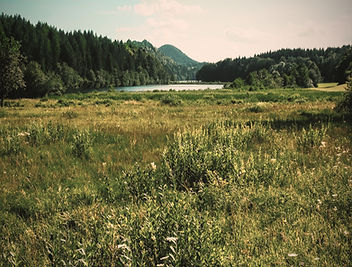Top 10 Foods To Avoid That Are Toxic to Dogs
- Robert Basauri

- May 4
- 3 min read
Many loving pet owners unknowingly expose their dogs to everyday human foods that are toxic to dogs. Some can cause mild symptoms, but others can lead to seizures, organ failure, or even death. Whether it’s an innocent table scrap or a dropped snack, a small amount of the wrong food can be devastating.
This guide breaks down the top toxic dog foods and offers essential prevention tips. Staying informed about foods to avoid can prevent accidental food poisoning and ensure your dog lives a long, healthy life. Now, let's get to the 10 foods to avoid that are toxic to dogs.

10 Foods To Avoid That Are Toxic to Dogs
1. Chocolate
One of the most commonly known toxic foods, chocolate contains theobromine and caffeine, both dangerous to dogs. Dark chocolate and baking chocolate have especially high concentrations and can be deadly. Symptoms may include vomiting, tremors, and seizures.
Tip: Store chocolate and baked goods far from reach, especially during holidays and special occasions.
2. Grapes and Raisins
Even a small amount of grapes and raisins can cause acute kidney failure. Some dogs react severely to just one grape. The reaction is unpredictable, making these particularly dangerous.
Tip: Keep fruit bowls and trail mixes containing grapes and raisins safely stored away.
3. Onions and Garlic
These staples damage red blood cells, leading to anemia. Whether raw, cooked, or powdered, they’re toxic. Watch for symptoms like weakness and elevated heart rate.
Tip: Avoid sharing any human foods that contain onion powder, garlic seasoning, or sautéed vegetables with your dog.
4. Avocado
Though nutritious for humans, avocados contain persin, a substance toxic to dogs. Ingesting any part—skin, pit, or flesh—can lead to digestive upset and more serious reactions.
Tip: Dispose of avocado pits and leftovers securely to avoid accidental ingestion.
5. Alcohol
Dogs are highly sensitive to foods and drinks containing alcohol. Even a tiny sip of beer or wine, or foods cooked with alcohol, can cause disorientation, breathing issues, or coma.
Tip: Clean spills immediately and never leave alcoholic drinks unattended, especially at gatherings.
6. Xylitol (Artificial Sweetener)
This common artificial sweetener is found in sugar-free gum, baked goods, and some peanut butters. Xylitol triggers a rapid insulin release, dangerously lowering blood sugar, and can cause liver failure.
Tip: Carefully check labels for xylitol, especially on products like candy and processed meats.
7. Caffeine
Caffeine, present in coffee, tea, and energy drinks, is toxic. High caffeine content stimulates the nervous system, leading to restlessness, heart palpitations, and seizures.
Tip: Dispose of coffee grounds, tea bags, and avoid letting your dog lick mugs or cans.
8. Macadamia Nuts
Just a handful of macadamia nuts can lead to weakness, tremors, vomiting, and high fever. Combined with dark chocolate in treats, the risk multiplies.
Tip: Never offer trail mix or cookies to your dog without checking ingredients.
9. Cooked Bones and Yeast Dough
Cooked bones splinter easily, risking internal injury. Yeast dough rises in the stomach, potentially causing bloating and life-threatening complications.
Tip: Offer only vet-approved chew toys or raw bones under supervision. Never give uncooked dough or leftover pizza crusts.
10. Milk and Ice Cream
Dogs lack the enzyme to digest lactose, making milk, ice cream, and other dairy toxic to dogs in many cases. These can cause gas, bloating, and diarrhea.
Tip: If you want to share a frozen treat, opt for lactose-free or foods for dogs specifically formulated for digestion.
Other Dangerous Foods and Drinks
While the top 10 are critical, other human foods pose risks too. Processed meats are often high in sodium and fat, potentially causing pancreatitis. Baked goods with nuts, chocolate, or xylitol are a hidden hazard. Even food wrappers and packaging can be dangerous if ingested.
Avoid feeding human leftovers unless you’re absolutely sure the contents are safe. If in doubt, always consult your vet.
What If My Dog Eats a Toxic Food?
Don’t wait for symptoms to appear. If your dog has eaten a suspected toxin—even a small amount—contact your veterinarian or the ASPCA Animal Poison Control Center at 888-426-4435.
Signs of toxic food ingestion may include vomiting, diarrhea, trembling, lethargy, or changes in heart rate. Immediate care can save your dog’s life.
Final Thoughts
Being aware of foods that are deadly for dogs is part of responsible pet ownership. Dogs can’t always distinguish what’s safe, so it’s up to you to monitor what they eat. Share this guide with anyone who interacts with your pet—children, visitors, pet sitters—to prevent accidental exposure.
In a world filled with tempting human treats, knowing which foods to avoid is your dog’s best protection.









Comments